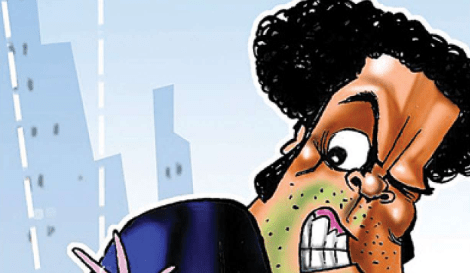Perpetrators of child sexual must get punished, but most survivors dread about the matter being reported, thanks to lack of awareness and sensitivity in the society. This startling revelation is the outcome of a survey conducted by an non-government organisation.
What was the survey all about? NGO Arpan, which works to prevent the occurrence of child sexual abuse, carried out the study. The NGO spoke to 64 adult survivors of child sexual abuse, including two men. Volunteers from the NGO conducted the study over a period of six months.
Why the need for the study? Under the Protection of Children from Sexual Offences Act (POCSO), if a citizen comes across the case of child sexual abuse, he is duty-bound to report the crime to authorities concerned. If a person chooses to keep, s/he can be punished. Arpan wanted to gain an understanding whether or not mandatory reporting would be advantage of their primary benefactors, children and adult survivors of child sexual abuse.
What were the findings Of the 64 survivors, nearly 62 per cent strongly feel that they would never be okay with mandatory reporting, while the remaining favoured the clause. According to researchers, for most survivors it took time to make sense of what had happened, to figure out the vocabulary to describe the incident and to muster courage to talk to someone. Guilt and shame were two major stumbling blocks to disclosure.
Did survivors shared their experiences? Yes. A respondent said her mother wanted her to narrate the crime in front of her abuser. “Whether it was because she did not believe me or because she wanted to judge from the reaction of my abuser, I do not know. It made me feel traumatised.” Another male participant said, “It’s nearly impossible to make anyone believe that I had been abused by another man. I once told someone about my experience and she laughed at it, telling me that I probably would have enjoyed it.”
What researchers feel?Shreya Sen, a researcher, who took part in the study, said, “It is important to take into account the unique and specific environment within which each survivor is negotiating with the aftermath of their abuse. Mandatory reporting may not suit the needs of every survivor.” Pooja Taparia, founder and CEO of the NGO said safety education programmes with children and greater emphasis on therapeutic intervention with survivors and their trusted adults needs to go hand in hand with law.
How was data collected?The research was done for six months and ended in July. The NGO created an online form containing qualitative, set of questions. A call for interviews was posted on various social media platforms. This gave people more choice and secrecy in coming forward to answer the questions as it ensured complete anonymity since no personal details were asked.
Consider safety a social initiative: ExpertsSwati Popat Vats, president of Early Childhood Association, said, “Even if the incident has not happened under you, one should know why that particular child has suffered some injury. Only problem is that in Maharashtra a teacher will be imprisoned for six months which is wrong. This will only create fear amongst teachers as they sit at the bottom of the hierarchy. It should be taken as a social initiative to take care of safety of children.”
Echoing the sentiments of Vats, Dr Samir Dalwai, a member of the expert panel of Maharashtra State Commission for the Protection of Child Rights, said, “Mandatory reporting is only possible after ensuring 100% judiciary and police sensitivity to handle this issues effectively and preventing secondary victimisation of these children. Second, there is a need for a paradigm shift in the way they look at survivors. It is still considered as a stigma by many, and unfortunately, survivors are treated either with sympathy or with suspicion rather than empathy and support.”
Source : DNA India











